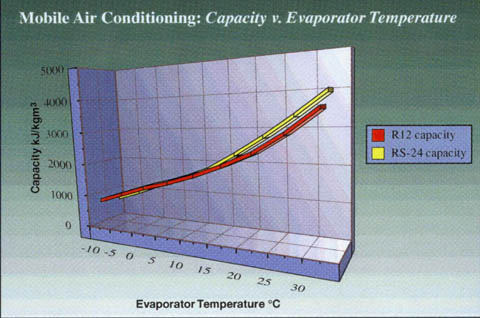RS-24 (R426A)
The Environment
None of the components of RS-24 contains chlorine so that the refrigerant has no ability to deplete the ozone layer.
As is the case with all hydroflurocarbons (HFCs), RS-24 does have a direct global warming potential (GWP), but this is counterbalanced by its lower Total Equivalent Warming Impact (TEWI) than R12. RS-24 has a relatively short atmosphetic lifetime of approximately 15 years which is at the lower end of the main HFCs available today and compares to 102 years in the case of R12.
Safety
RS-24 has been independently tested and meets the ASTM 681-98 test of being non-flammable as formulated and under all conditions of fractionation.
The components of RS-24 have been subjected to toxicity tests carried out by the Alternative Flurocarbons Environmental Acceptability Study (AFEAS) and have been declared to be of low toxicity. Health and safety data is available on request.

Servicing
Because RS-24 is a blend of three components the recommendation is to charge the refigerant into the system in liquid form.
A full service and conversion guide is available on request.
Global Warming Potential

Atmospheric Lifetime

RS-24 in Low Temperature Regrigeration
Under certain circumstances, at low evaporator temperatures, poor oil miscibility can result in problems with compressor lubrication. At evaporator temperatures below -20°C, migration of oil to the compressor can result in a lack of lubrication in the compressor. If such conditions apply, then the recommendation is to change to a polyol ester lubricant to facilitate oil return to the compressor. There is no need to drain all the existing oil from the system. Simply remove as such of the mineral oil charge as is practicable and refill to the appropiate level using POE lubricant.